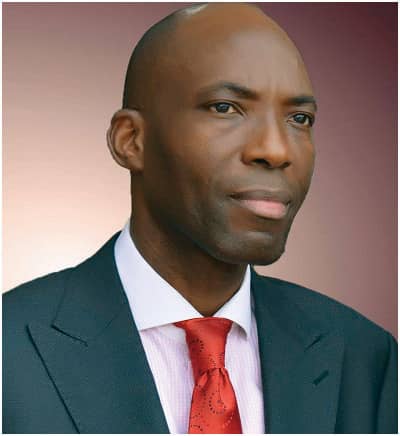Enterprise model will address challenges in Nigerian varsities, Prof Awodun urges FG
Kehinde Akinpelu,Ilorin
Professor of Business and Entrepreneurship at Ojaja University (formerly Crown-Hill University) Eiyenkorin, Kwara State, Nigeria, Muritala Awodun, has urged the Federal Government under President Bola Tinubu to adopt an enterprise model to address governance and funding challenges of public universities in Nigeria.
He advocated a public-private partnership (PPP) ownership arrangement as the solution to the challenges.
He said the 61 state universities and 51 federal universities in Nigeria are facing obvious resource constraints, adding that this can be turned around permanently with the PPP model.
According to him, the 112 public universities can be matched to the top 112 private enterprises in Nigeria for adoption in a PPP arrangement that will be a win-win situation, adding that all the problems bedevilling the public universities will become a thing of the past.
Awodun, who is the Director of the Centre for Enterprise and Human Capital Development of Ojaja University, spoke while moderating the fourth breakout session of the 3rd Annual Conference of the Forum for Innovation in African Universities, FIAU, with the theme: “Strengthening Africa’s Higher Education in a post-COVID-19 world.” at Abuja.
According to his presentation obtained by New Telegraph on Tuesday, the fourth breakout session looked at “Strengthening Resource-Constrained African Universities Through Partnership.”
The forum’s meeting was declared open by the Permanent Secretary of the Ministry of Education, Mr Andrew David Adejoh. The acting Executive Secretary of the National Universities Commission, (NUC), Mr Chris Maiyaki and the Director General of the Industrial Training Fund, Sir, Joseph Ntung Ari, delivered keynote addresses at the summit that had Vice Chancellors of Nigerian Universities and Directors of Centres for Entrepreneurship, in attendance.
Awodun said, “The government, as owners of these public universities, could save itself from the quagmire of the present challenges by adopting this enterprise model as the solution to turnaround all the 112 public universities in Nigeria and bring them to self-sufficiency under this model in a maximum of 10 years.
“The Federal Government under President Asiwaju Bola Ahmed Tinubu, GCFR, should take the lead in this regard with the federal universities and watch the enviable results and relief that will come out of it for the universities and the government.”
Giving a typical example to drive home his point, he identified the major funding needs of a typical university as infrastructure (capital expenditure), recurrent, teaching, research, capacity development, endowment and community development.
While the education tax has provided succour to the infrastructure problems, through TETFUND, which he believes needs some overhaul to reduce wastages and leakages, he said the others are not as certain and remain challenging to the government that owns the institutions.
According to him, the enterprise model solution, therefore, is the adoption of each of these 112 universities by the top 112 private institutions, which he identified in his study, through a tax-related ownership/governance arrangement for a minimum of 10 years, to bring about the required turnaround and bring these universities to self-sufficiency.
Rolling out statistics from his study, he stated that he intentionally left out companies operating in the oil industry in his study of the top 120 companies operating in telecommunications, banking, food and beverages, building and construction, manufacturing and agriculture, analyzing their income statements before arriving at his conclusion.
He cited the example of MTN in his presentation, with a Profit after tax (PAT) of N359b in 2022 paying about N10b in education tax and about N145b as company income tax. He opined that if allowed to adopt, for instance, the University of Nigeria whose 2023 approved budget is N29.3b, the highest of the federal universities, the company will conveniently fund UNN with just about 20% of their company income tax directly used for this arrangement. Adopting the University under the enterprise model solution being proposed should give the company a 51% ownership and stake in the governance structure of the institution that will bring about the required turnaround.
Awodun posited that the successes recorded by the most successful private universities like Covenant, Babcock, Afe Babalola, Redeemers, Igbinedion, etc were not due to the availability of funds from the owners of these institutions alone, but more importantly of the visionary governance and management that prioritizes performance measurement, efficiency, productivity, innovation and commitment which, he said are on the downward trail in the public universities in Nigeria.












